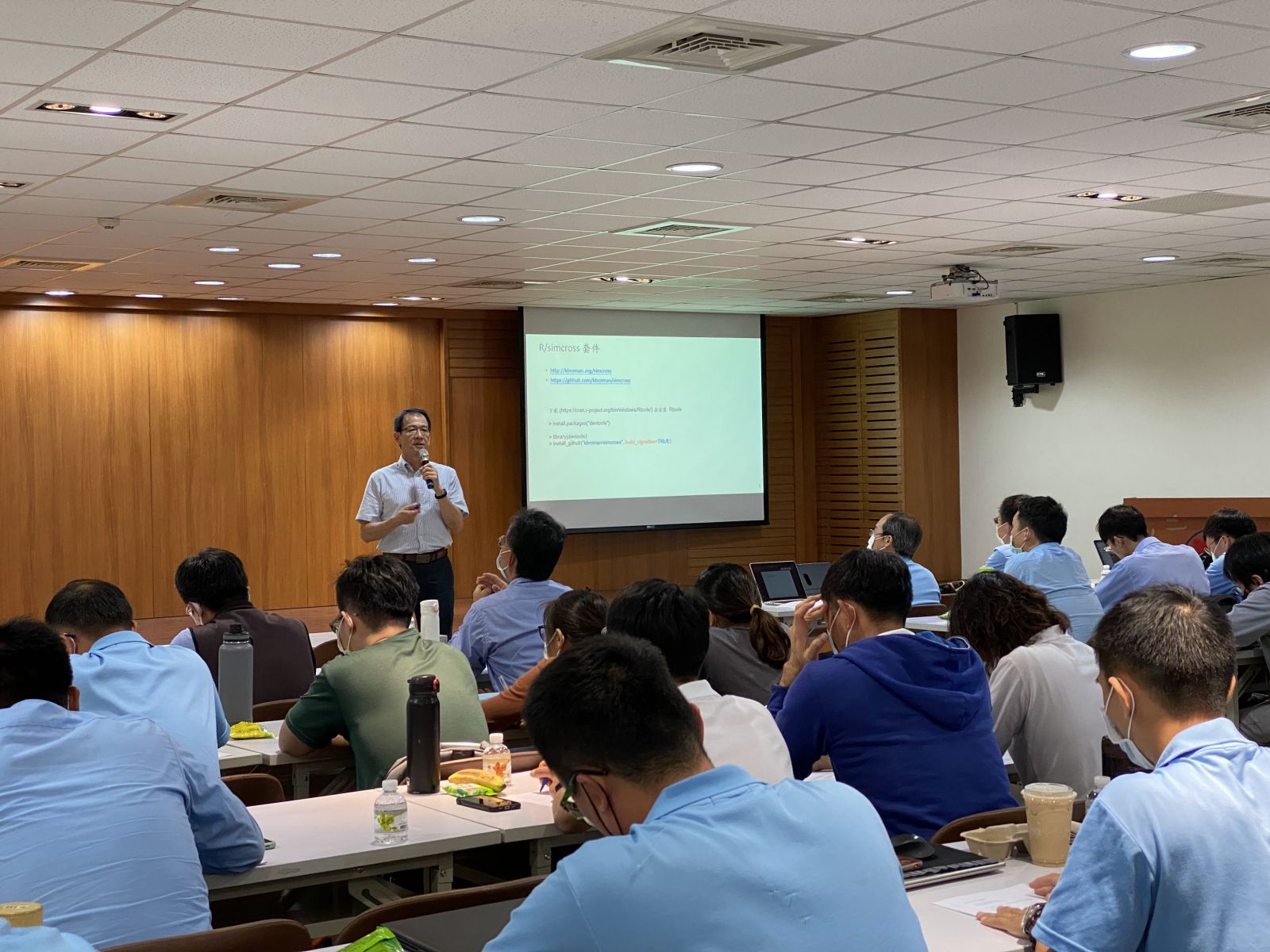農藝系團隊開發番椒品種鑑別與雜交成功率檢定SNP分子標誌套件 技轉農友種苗公司
台大農藝系副教授胡凱康研究團隊開發番椒品種13組單核苷酸變異(SNPs, Single nucleotide polymorphisms)共顯性分子標誌,基因型組態可完整區分台灣種苗業者提供的119個番椒一代雜交品種,相較於現行的田間檢定法(Grow out test, GOT),能更快速且準確地評估所生產雜交種子的品質,提升效率。而該項技術也已轉移給農友種苗公司,作為生產雜交種子品質管理與品種權保護的基礎工具,提升我國番椒種子出口品質。
番椒(Capsicum annuum)泛指辣椒(hot pepper; chili pepper)及甜椒(sweet pepper; bell pepper),屬茄科(Solanaceae)植物。108年全球番椒栽培面積將近457萬公頃,據109年農業統計年報顯示,台灣番椒總種植面積達2580公頃,其中番椒一代雜交種子是我國重要進出口品項之一。
在雜交種子的生產過程中,影響種子純度最重要的因子為雜交成功率,目前的GOT檢定法是將雜交種子栽植於田間或溫室,培育至收穫期,以生育過程中觀察植株外表特性來判定雜交型與親本型的比率。由於GOT具有所需時間長、容易受到環境風險及準確度受檢定人員經驗影響等缺點,雜交成功率檢定常成為雜交種子生產品質控管上的瓶頸。
為解決這項困境,胡凱康研究團隊在行政院農委會的支持下,針對我國種苗產業中最重要的蔬菜作物,利用高通量次世代平行定序(Next Generation Sequencing, NGS),以生物資訊技術探勘雜交品種間有差異的單一核苷酸多型性(SNP)分子標誌,建立具有高度專一性、再現性,且可自動化分析的分子檢測技術。
相較於GOT檢定,利用分子標誌進行雜交成功率檢定可以降低種子檢驗的成本與田間種植風險,快速並準確地評估所生產雜交種子的品質,提升種苗業者的出貨速度與商業信譽。少量分子標誌的組合可以用於確認出貨時的品種是否符合訂單,或用於評估品種純度,避免調製時的污染;較大規模的分子標誌組合則可用於商業品種的品種鑑定,有效保護原育種者權益。
這項技術也在台大產學中心媒合下,於110年8月26日完成簽約,轉移給農友種苗股份有限公司,作為生產雜交種子品質管理與品種權保護的基礎工具,以提升台灣番椒種子出口品質。
.png)
胡凱康今年3月受邀至農友種苗股份有限公司演講,說明分子標誌系統在品種育成、雜交種子品質管理與品種保護上的用途。
Dept. of Agronomy Developed Pepper SNP Marker Identification Technology Transfer to Seedling Trader
Associate Prof. Kae-Kang Hwu at Department of Agronomy and his team developed 13 novel single nucleotide polymorphism (SNP) codominant markers selected from the parallel sequenced genome of Capsicum annuum plants to identify more than 100 pepper varieties in the market. Within the SNP marker set, more than one marker is heterozygote for each pepper varieties to determine the success rate of hybridization. Also, the set is helpful to establish a fast and reliable system of seed quality management to provide robust evidences for variety right protection.
Capsicumannuum is a species of the plant genus Capsicum which is a genus of flowering plants in the family Solanaceae. The species encompasses a wide variety of shapes and sizes of peppers, both mild and hot, such as bell peppers and hot peppers. According to Food and Agriculture Organization (FAO) publications catalogue 2021, global harvested area of C. annuum was estimated at 4 million acres, while the harvested area in Taiwan was up to 2,580 acres according to Agricultural Statistics Yearbook in 2020. C. annuum accounts for a large portion of imported and exported products in Taiwan, especially the F1 hybrid seeds. To decide seed purity, the examination of the success rate of hybridization is the most crucial way. In traditional grow-out test (GOT), the ratio of hybrid is evaluated by morphological characters when hybrid peppers are grown in farmland or greenhouse until harvesting. However, traditional GOT is costly, time consuming, environment sensitive, and operator-experience required, so the examination of the ratio of hybrid has been a critical control point during the management of hybrid seed production.
Associate Prof. Kae-Kang Hwu and his team set up a unique, reliable, and automatic variety identification technology with SNP molecular markers which were distinguished from C. annuum hybrid varieties by high throughput next generation sequencing (NGS). Compared to traditional GOT, this novel technology lowers the cost of hybrid examination and reduces the risk of error during plant growing. For seedling trader, it highly improves the evaluation of seed quality to speed up the shipment, and brings positive commercial reputation. Using single or few markers is beneficial for delivery to confirm the seed purity of order items, while using multiple markers is robust to protect the breeder’s right of commercial varieties. Matched by Center of Industry-Academia Collaboration, the technology has been transferred to KNOWN-YOU SEED CO., LTD. on August 26th, 2021, as the tool for seed quality management and C. annuum variety right protection.

Associate Prof. Kae-Kang Hwu was invited to KNOWN-YOU SEED CO., LTD. for the demonstration of SNP marker for pepper variety identification on March 17th in 2020.